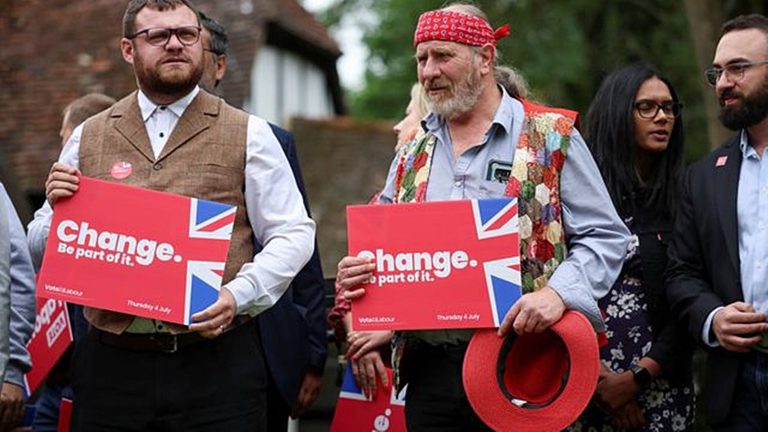Ministers Reconsider Copyright Law Changes Ahead of Key Parliamentary Vote
Ministers are reconsidering controversial changes to UK copyright law in the run-up to a parliamentary vote next week, marking a further concession to creators and artists, The Guardian has learned.
A source close to Technology Secretary Peter Kyle said the proposal to implement an opt-out system for copyright protections is no longer his preferred route and is now just one of several options under review.
The proposed reforms would allow artificial intelligence companies to train models using copyrighted material without explicit permission unless rights holders choose to opt out. This idea has sparked backlash from creators and publishers, with prominent figures such as Paul McCartney and Tom Stoppard lending their support to a campaign opposing the plans.
“We’re listening to the consultation and we are absolutely determined to get this right,” Kyle said. “We’re not going back to square one. We are moving forward.” He acknowledged the global nature of AI development, adding: “We can’t pretend we can outlaw training in other countries who have their own copyright law, but we can build a system which works in the United Kingdom.”
Kyle also noted that some aspects raised during the consultation have yet to be fully explored in the public debate. “We will be working hard to come up with practicable solutions to the very complex issue of how we enable both the creative industries and UK AI companies to flourish,” he said. “We will report to parliament on issues of transparency and licensing and try to find some common ground on which we can agree.”
Although the opt-out model had initially been flagged as the government’s “preferred option,” sources now indicate that Kyle is open to a wider range of approaches. A key area of focus is developing licensing agreements between AI companies and content creators, ensuring creators are fairly compensated for their work.
Despite this shift, campaigners warn the government might still revert to a less regulated model that allows AI firms broad use of copyrighted material. Officials argue reform is necessary to make the UK a more attractive destination for AI investment while still granting creators more control over their content.
Baroness Beeban Kidron, a leading advocate for digital rights, welcomed signs of movement but stressed the need for immediate action. “I am glad to hear that the government no longer sees an opt-out proposal as the preferred option,” she said. “But for this change to be meaningful, it must include an unequivocal commitment to protect copyright holders right now.”
Next week, MPs will vote on the data bill, a piece of legislation that opponents—including Kidron—have used to challenge the proposed opt-out system. On Thursday, Kyle introduced amendments to the bill aimed at easing concerns, including a commitment to conduct an economic impact assessment of various options, such as the opt-out and licensing models.
Tensions are expected to rise as ministers brace for political clashes over opposition amendments. Both the Liberal Democrats and Conservatives are weighing proposals to ban under-16s from accessing social media, a move that has seen cross-party support, including from Labour MPs.
Additionally, Conservative sources say the party is preparing an amendment to require the recording of biological sex at birth in digital verification systems. A Labour source criticised the proposal as a “naked attempt to reopen a running sore” around gender identity following a recent Supreme Court ruling defining “woman” based on biological sex.
The data bill is also set to face further challenges in the House of Lords. Kidron plans to reintroduce her copyright-focused amendments, while Liberal Democrat peer Tim Clement-Jones suggested the bill could ultimately be rejected unless the government agrees to greater transparency from AI companies, particularly around disclosure of copyrighted material used to train their systems.
The government’s pledge to carry out an economic impact assessment within 12 months of the bill’s passage has raised further concerns. Some worry that the review process could drag on until the end of Labour’s parliamentary term in 2029.
Owen Meredith, chief executive of the News Media Association, which includes The Guardian among its members, warned: “The world is moving exceptionally fast, and the government is moving very slow. Delay means change to the underlying copyright framework could not materialise until the very tail-end of this parliament.”
Kidron echoed that sentiment, calling the proposed four-year delay “a completely inadequate timescale.” She warned: “The creative industries will be dead on their feet by then.”

